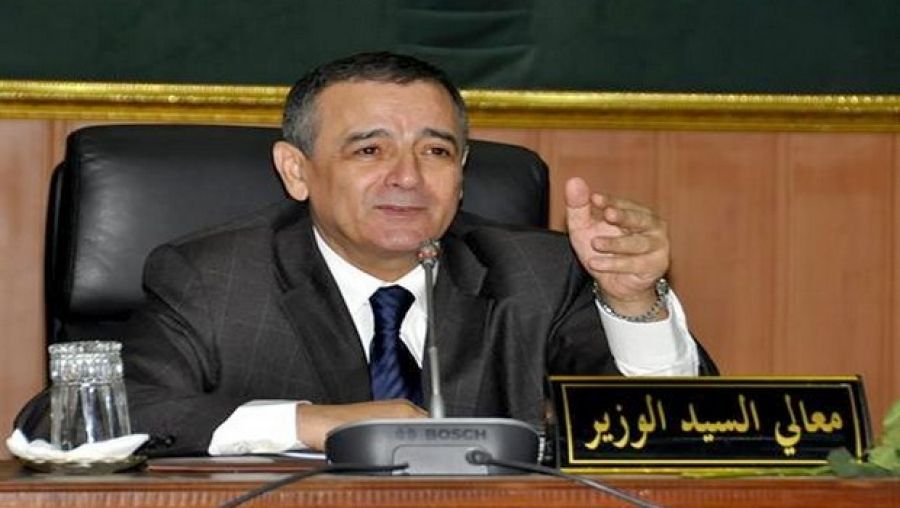The US Ambassador to the UN, Nikki Haley, kicked off a three nation African tour Monday in Ethiopia, before travelling to South Sudan and the Democratic Republic of Congo. Haley is the highest-ranking official of the Trump administration to visit Africa amid criticism of the US’s disengagement from the continent.
Nine months into Donald Trump’s presidency, there’s been little said of Africa, and the little that has been said, has been convoluted.
At a meeting with African leaders in New York last month, the US president praised the achievements of ‘Nambia’, a country which doesn’t exist. He’d in fact mixed up Namibia and Zambia.
“What it looks like is that for the Trump administration, Africa is not a very high priority,” Phil Clark, a specialist on African politics at SOAS University in London, told RFI.
“Even Trump’s recent comments on Africa, about how many of his powerful friends are looking to become rich off the back of Africa, suggested that in Trump’s mind, Africa was simply this gold mine that could be tapped by the American business community,” said Clark in reference to Trump’s lunch with African leaders in September.
Not an easy trip
“South Sudan has obviously been picked because the US was largely responsible for birthing the independent South Sudan,” David Shinn, the US former ambassador to Ethiopia and Burkina Faso told RFI.
“Things have obviously gone very badly since and I think there’s a desire to speak very frankly and very firmly with the leadership in Juba and make it very clear that US patience is running very thin,” he said.
She might have an easier job in Ethiopia which is relatively normal out of the three countries she’s picked suggests Shinn, but DRC will be just as tough as South Sudan he thinks.
“You have these constant postponed elections and concerns about whether [President Joseph] Kabila is running again, and I suspect there’ll be frank talk about that too. This is not going to be an easy trip for her.”
Niger fallout
It’s not going to be easy for Haley either in managing the fallout from the US mission in Niger that left four American soldiers dead and two wounded earlier this month.
At home, pressure is growing on the Pentagon to reveal exactly how IS-affiliated militants were able to ambush a group of Niger soldiers, backed by their US counterparts in the first place.
For Emmanuel Dupuy, President of the Paris-based institute of prospective security studies, the Niger attack illustrates the short-sightedness of the US Africa policy when it comes to security.
“They must be prepared for a new type of operation, and they should take a leaf out of the French through the Barkhane force, and from the African countries themselves who are operating through the G5 initiative,” Dupuy told RFI.
“They are all aware that there is a transformation of the terrorist group and that they can target both African armies, and now foreign troops. First the French, and now US soldiers in Niger.”
AFRICOM under scrutiny
“I think what many African states are calling for is a more forthright discussion about AFRICOM [the US Africa Command] and what kind of an impact it’s having in African conflict zones,” reckons for his part Clark.
Although the US has disengaged from the continent in terms of peacekeeping, Clark says it’s remained active in Africa partly through its AFRICOM operations–Washington for instance has between 800 and 1000 special force operators in Niger–but the Africa specialist slams the “shadowy” nature of this involvement.
“The killing of the US special forces has put a spotlight back on this issue. So I’ll expect Nikki Haley to be pressed quite heavilly on this topic,” he said.
The Niger attack however won’t overshadow Haley’s trip thinks David Shinn.
“It will certainly come up at some point, probably in Addis Ababa, but the visit will be much more focused on South Sudan and the DRC,” he says.
Cutting costs
And on cutting costs.
Haley said in a statement ahead of her African tour that she would take a critical look at the UN operations in Juba and Kinshasa.
Each costs the US just under one billion euros annually.
The US has so far slashed over 500 million euros from its peacekeeping budget already, with Haley pushing for more cuts.
“That really sent shockwaves through a range of African states,” says Clark.
“The worry was that this would lead to much reduced peacekeeping capacity and that could have an impact on the ability of the UN to protect civilians in some of these African conflict zones,” he said.
For his part, Shinn reckons that Haley could have just as easily verified the costs of the UN peacekeeping missions from New York: “it doesn’t require a trip to Africa,” he said.
In shadow of Bush legacy
Haley’s trip is as much about getting a clear assessment of the US interests in countries it funds substantially, but she’s also under pressure to rebuild the US Africa policy back up to where it was under President George W. Bush.
The latter won praise for boosting humanitarian aid to Africa notably through PEPFAR [the President’s Emergency Plan for AIDS Relief], which was big in fighting HIV/Aids.
His successor Barack Obama went further by visiting the continent extensively or if not sending top officials in his place.
So far, Donald Trump hasn’t even named a permanent secretary for Africa yet after nine months.
“I’m hard pressed to see how they’re going to make Africa a more significant part of the foreign policy agenda than they have so far,” cautions Shinn.
“They may increase it somewhat, but I think they’re just so preoccupied with other parts of the world that it’s going to be hard to bring Africa up the priority list,” he said.














